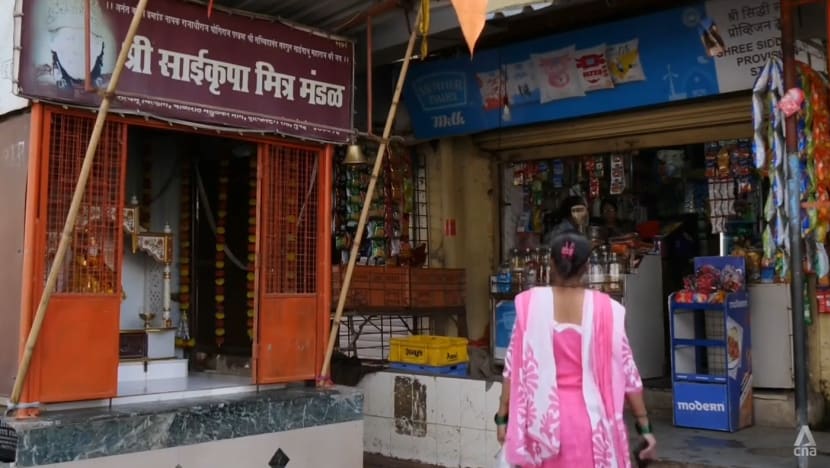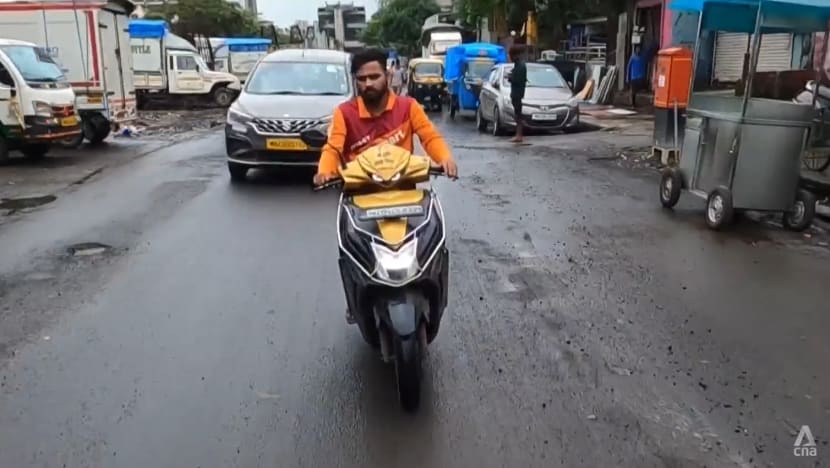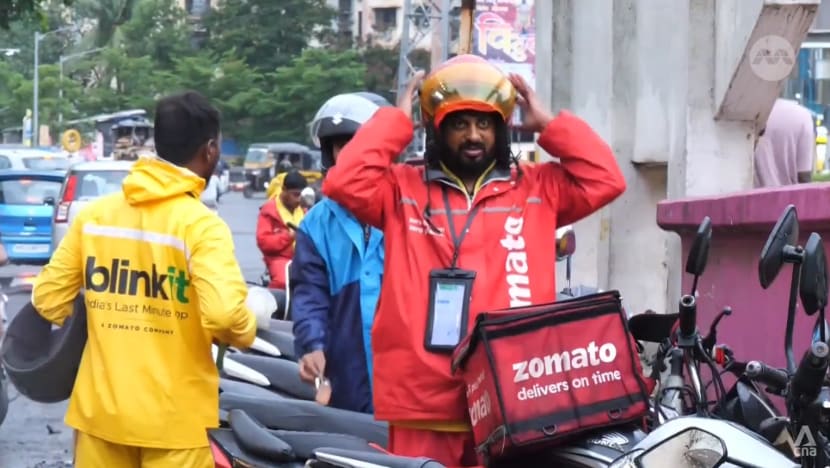As quick-delivery grocery apps grow in India fuelled by cheap labour, mom-and-pop stores struggle to compete
The easy availability of cheap labour is one of the factors that makes these so-called "last minute" grocery apps viable in India.

One of India's millions of mom-and-pop shops, known as kirana stores.

This audio is generated by an AI tool.
MUMBAI: Grocery apps that promise delivery in 10 minutes or less are reshaping the way Indians living in urban areas shop.
Such services have expanded rapidly in India, providing convenience and creating jobs.
Among those who have benefitted from the new economy is Mukesh Jaiswal, who makes a living delivering groceries by bike.

He works for Swiggy Instamart, which allows customers to buy products ranging from vegetables to cosmetics online with a promise of delivery in about 10 minutes. The online store operates in about 25 cities currently.
It can be a tough job. Mukesh collects the orders from a warehouse and navigates his way to customers' homes braving poor-quality roads, traffic, heat, and the occasional torrential monsoon rain.
“It's very challenging for us during the monsoon season. There are more potholes in the road filled with rainwater and sometimes, it's hard to see where these potholes are,” he told CNA.
AVAILABILITY OF CHEAP LABOUR
Mukesh's performance is tracked - and scored - by the app, and every journey he makes within time puts him at a better chance of securing his next gig.
Each delivery earns Mukesh between 20 rupees (US$0.25) and 70 rupees. In a typical 10-hour day he can make over 20 deliveries, earning an average of US$10, just enough to get by.
The easy availability of cheap labour is one of the factors that makes these so-called "last minute" grocery apps viable in India.
Alongside Swiggy - which is backed by Japan's Softbank – other apps offering similar services include Zomato's Blinkit and Zepto.
It is big business. Swiggy, for instance, is planning an initial public offering (IPO).
According to global investment banking firm Goldman Sachs, quick commerce makes up about US$5 billion - or almost half - of India's online grocery market. It forecasts that by 2030, the fast delivery segment will account for 70 per cent of an online grocery market that will be worth US$60 billion.
Speed and convenience means many urbanites now rely on apps for most of their shopping, with some even opting to get just one item like a carton of milk or bar of soap delivered at a small delivery fee.
“If we order things on Blinkit or any other online shopping app, we get some discounts. It's easy. We don't visit the shops anymore,” said one shopper.

SMALL STORE OWNERS WORRY
While customers are happy, small store owners are worried.
Among them is Ashok Chaurasiya who owns one of India's millions of mom-and-pop shops, known as kirana stores. Until not long ago, they were the go-to solution in Mumbai and other major cities for people's daily grocery needs.
Chaurasiya, who has run his shop for 20 years, said the growth of supermarket chains and delivery apps have been eating into his profits.
He tried to keep up with the competition by offering his own delivery service, but is struggling to pay his drivers.
It is only his loyal, regular customers, who he offers monthly credit to, keeping him in business.
“Because of all these big businesses like Swiggy and DMart, we have taken a big hit. There's a huge difference in their profit margins and ours. We have lost about 15 to 20 per cent of our business,” he told CNA.
Analysts said that online delivery companies are not necessarily making money yet, even if they do have deep pockets.
“Both Zomato and Swiggy are still in customer acquisition mode, so they are willing to incur losses in the short term as long as they are able to increase their own penetration and increase the size of the market,” noted Utkarsh Sinha, managing director of Mumbai-based Bexley Advisors.
He added that this may mean that the low delivery charges that customers are currently used to may not continue for very long.
“When we think about the lives of the delivery drivers, one would hope that these charges do go up over time. But as of now, it's been one of the factors that has helped accelerate adoption,” he said.

















